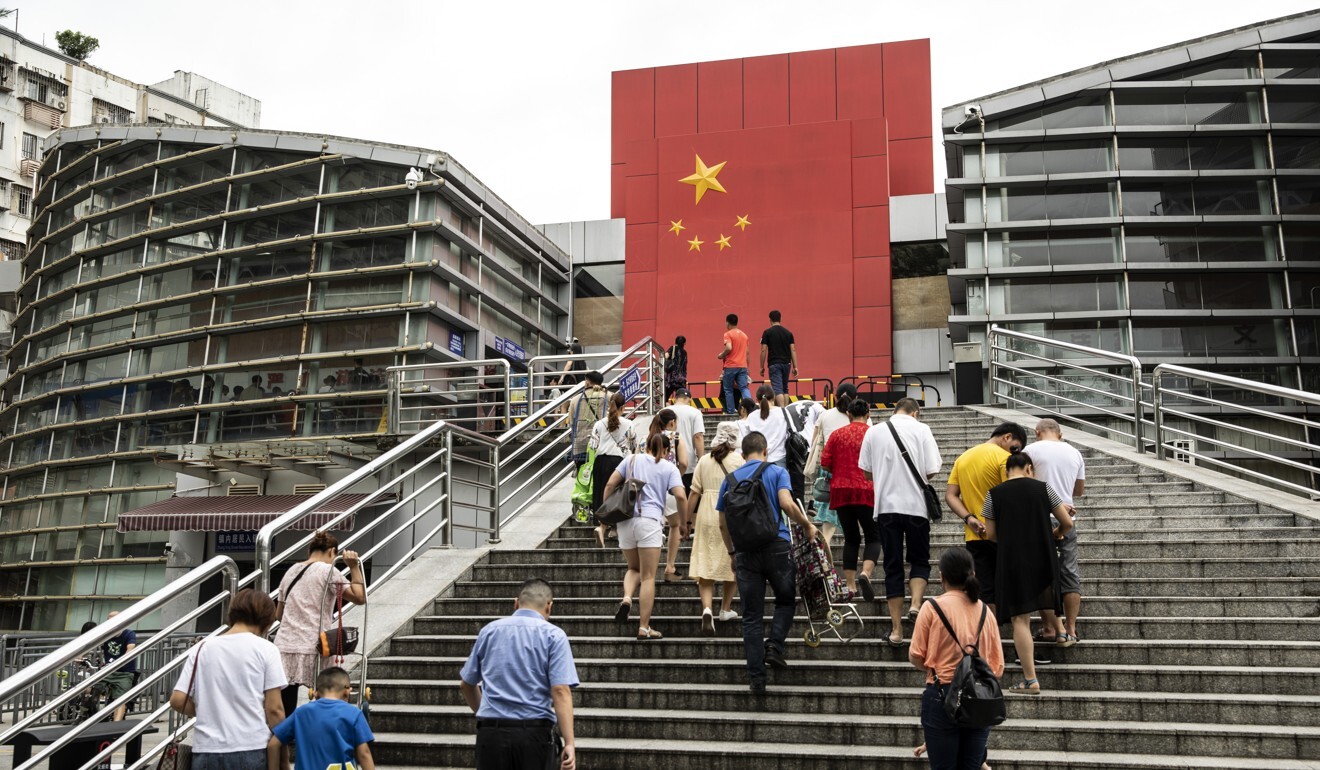
‘Right time’ to be in Hong Kong, but officials, businesses must work together to make most of Greater Bay Area, heavyweights say
- One executive says encouraging young people to seize career opportunities across the border is key, while another calls on businesses to consider how they can support the government
- The pair were among a group of business leaders discussing how to cement the city’s role in the Greater Bay Area at a Redefining Hong Kong event organised by the Post
Hong Kong authorities must work with businesses to make the most of Beijing’s ambitious plan to integrate the financial hub with its mainland Chinese neighbours, including by encouraging young talent to seize career opportunities across the border, a panel of local business leaders has said.
With a total gross domestic product of US$1.7 trillion (HK$13.2 trillion) in 2020 and a population of over 80 million, the bay area is home to a host of technology companies, including social media and gaming giant Tencent Holdings, drone maker DJI, smartphone manufacturers Oppo and Vivo, and telecoms powerhouse Huawei.
Hong Kong will play active role in Shenzhen’s Qianhai economic zone: Lam
In order to encourage a “flow of talent”, the Hong Kong government should promote programmes for younger people to experience the bay area project and consider career opportunities there, he added.
“I think it’s a win-win with Hong Kong and mainland talent,” Chan said. “Having that circulation creates a lot more opportunities for people interested in different sectors.”
EY runs a pilot internship programme that places university students from Hong Kong in the company’s bay area offices with the aim of improving their knowledge of the mainland – just one of many such initiatives rolled out by local businesses since the introduction of a new youth employment scheme in November.
Chan added that he believed Hong Kong’s role as an international business hub remained unique in the bay area, despite diversification on the mainland after decades of growth.

Wong emphasised that governments on both sides of the border would need to “harmonise” to ensure they were on the same page when it came to the transfer of information and the exchange of goods and services.
‘One country, two systems’ to be extended into mainland China, but not by Hong Kong
Christian Secci, CEO of logistics start-up Pakpobox, agreed that the different legal and business environments of the bay area, along with a lack of coordination, could pose a challenge for incoming firms.
For instance, Secci said, some companies might struggle to overhaul their existing social media strategies given that some popular platforms, such as Facebook and Instagram, were banned on the mainland.
But Secci said he was also optimistic about the city’s future, and rather than asking what more authorities could do for businesses, it was business that should be supporting the government in fully unlocking the bay area’s potential.
“The government cannot solve everything,” he added. “We need to do a full integration of all different areas.”
Alipay becomes first digital wallet allowing remittances between Macau, mainland China
In a separate session during Tuesday’s event, Chang Ka-mun – secretary general of the 2022 Foundation, a non-profit organisation dedicated to strengthening Hong Kong’s long-term competitiveness – also highlighted the importance of the government’s continued support for start-ups.
Chang said Hong Kong needed to maintain its reputation as a “world-class city”, as it was paramount to its success in the region.
“Start-ups love Hong Kong for its position … there is always potential here,” he said.

